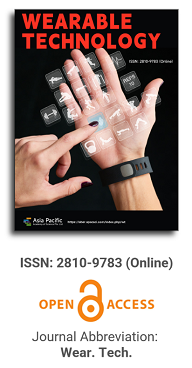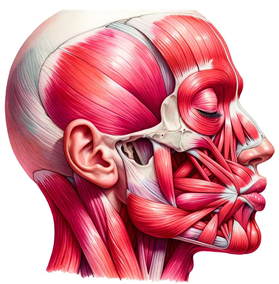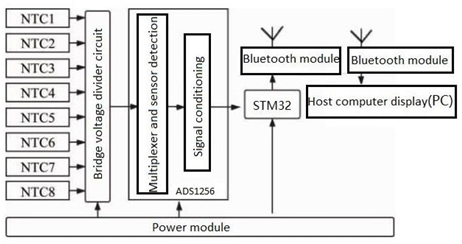

This paper delves deeply into the innovative realm of integrating human emotions with wearable technology. The primary focus is on the conceptualization and development of a kiss transfer device that harnesses the power of wearable technology to bridge the physical gap in human-human interactions. By investigating the intricate nuances of the human-human kissing process, the research seeks to replicate this intimate gesture through a technological medium. The paper not only elaborates on the anatomy, evolution, and hormonal dynamics of kissing but also underscores the transformative potential of wearable technology in capturing and transmitting these intimate moments. This exploration opens up new horizons for long-distance relationships, offering a tangible touchpoint that goes beyond traditional communication methods. Through this pioneering work, the research positions wearable technology as not just a tool for communication but as an extension of our human emotions and expressions.

College of Information Science & Electronic Engineering, Zhejiang University, China
Bio Statement Dr. Zhen Cao received his B.S. degree in Microelectronics from Fudan University, Shanghai, China in 2010. He obtained his Ph.D. in Electronic and Computer Engineering from the Hong Kong University of Science and Technology (HKUST) in 2014 and was a postdoctoral fellow in the same group at HKUST from 2014 to 2015. From 2015 to 2016, he worked as a postdoctoral fellow with Prof. Stephen Chou (member of the U.S. National Academy of Engineering) in the Department of Electrical Engineering at Princeton University. He joined Zhejiang University as a junior faculty member in September 2016. He has first-authored many high-profile publications in international peer-reviewed journals such as ACS Nano, Small, Analytical Chemistry, and presented many invited talks at international conferences and symposia including Transducer, Microtas, IEDM. His research interests primarily include silicon-based micro/nanofabrication, electrokinetic-based separation and enrichment methods, biomicrofluidics, and lab-on-a-chip systems for biomedical applications.
As the Editor-in-Chief of Wearable Technology (WT), Prof. Dr. Zhen Cao has played a positive role in the collection of manuscripts and made important contributions to the development of WT. Here, the Editorial Office would like to express our sincere gratitude to Prof. Zhen Cao for his hard work.
New Research In June 2022, as the first author, Prof. Zhen Cao has published a research article in Biosensors & Bioelectronics (IF: 12.545) with the title “Monolithically integrated microchannel plate functionalized with ZnO nanorods for fluorescence-enhanced digital polymerase chain reaction”. In this paper, they report on an integrated microfluidic digital PCR system for rapid and high-performance absolute quantification of DNA at a single-molecular level. Microchannel plate (MCP), a highly porous glass membrane conventionally used as a particle multiplier in detectors, is demonstrated here as an ideal platform for the sample partition and high-fidelity DNA detection. The density of microchambers could be easily scaled for extensive applications and detection ranges by abricating various MCP matrix structures. Given this high performance and a straightforward fabrication process of MCP, the device is expected to replace conventional PCR equipment for high fidelity and wide dynamic range single-molecule counting. For more details, please click https://doi.org/10.1016/j.bios.2022.114499. |

Prof. Zhen Cao
College of Information Science & Electronic Engineering, Zhejiang University
China, China
Processing Speed
-
-
-
- <5 days from submission to initial review decision;
- 62% acceptance rate
-
-
Asia Pacific Academy of Science Pte. Ltd. (APACSCI) specializes in international journal publishing. APACSCI adopts the open access publishing model and provides an important communication bridge for academic groups whose interest fields include engineering, technology, medicine, computer, mathematics, agriculture and forestry, and environment.






